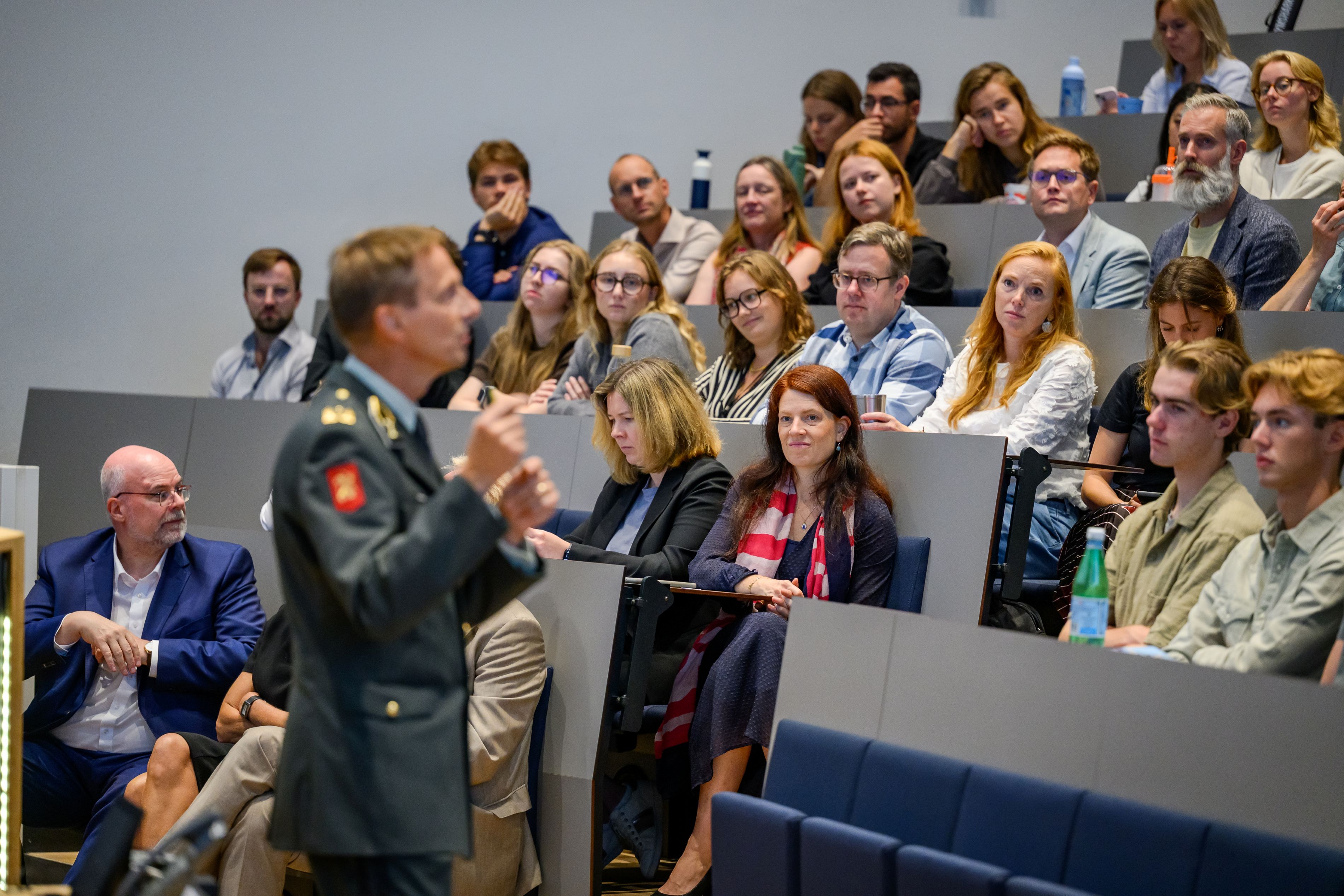
Flying pencil links Leiden and The Hague at launch of new degree programmes
It was a memorable start to September. While Leiden marked the opening of the academic year, The Hague celebrated the launch of three new degree programmes. Students were welcomed on a blue carpet rolled out at the entrance to the lecture halls.

Economy & Society
On Monday morning, the students of Economy and Society were first welcomed in the Wijnhaven building. During the lecture, presented by Programme Director Philippe van Gruisen ('it's not an easy degree, sometimes you'll have to work twice as hard, but that's where success lies'), the students were encouraged by several prominent speakers, including Professor Kees Goudswaard and the President of DNB, Olaf Sleijpen.
Programme Director Aart Gerritsen of Erasmus University Rotterdam told the students that four years of collaboration had gone into developing this degree. Ten courses will be taught by Erasmus, the rest by Leiden University. What is the difference from the Economics bachelor’s at Erasmus? Gerritsen’s brief explanation: 'This bachelor’s is primarily focused on linking economics with social issues in society. In line with the vision of Nobel Prize laureate Jan Tinbergen.'
According to Suzan Stoter, Dean of Leiden Law School, it is a unique degree that connects policy with reality. 'Only in this way can society move forward.'
The event concluded with a special video in which two Nobel Prize laureates in Economics shared a message: James A. Robinson (2024) and Joseph E. Stiglitz (2001). This was followed by loud applause.
Gallery Economy & Society
-
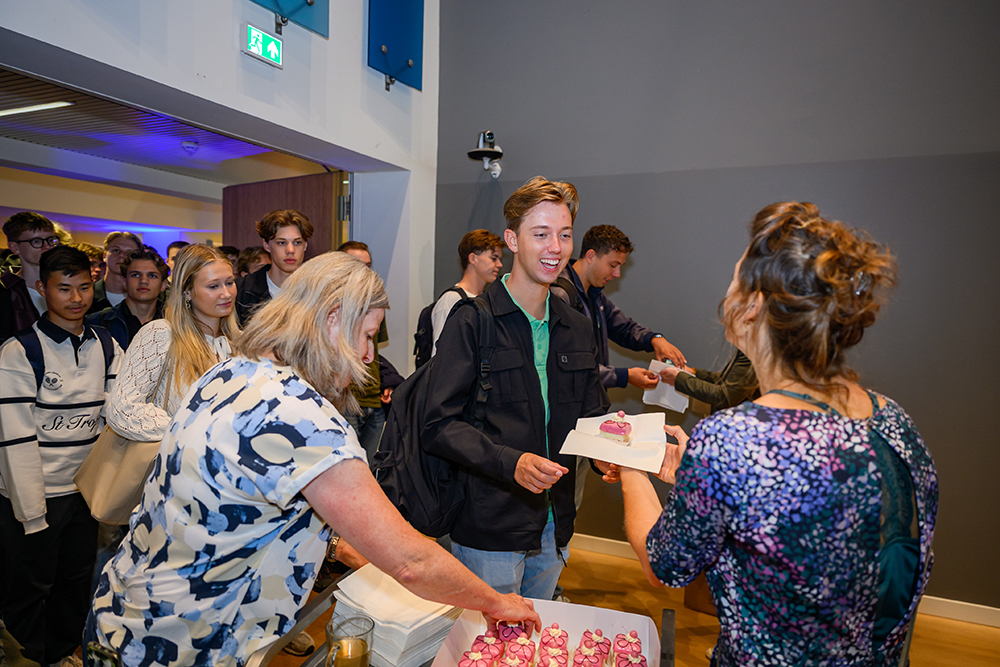
Students are welcomed with petit fours -
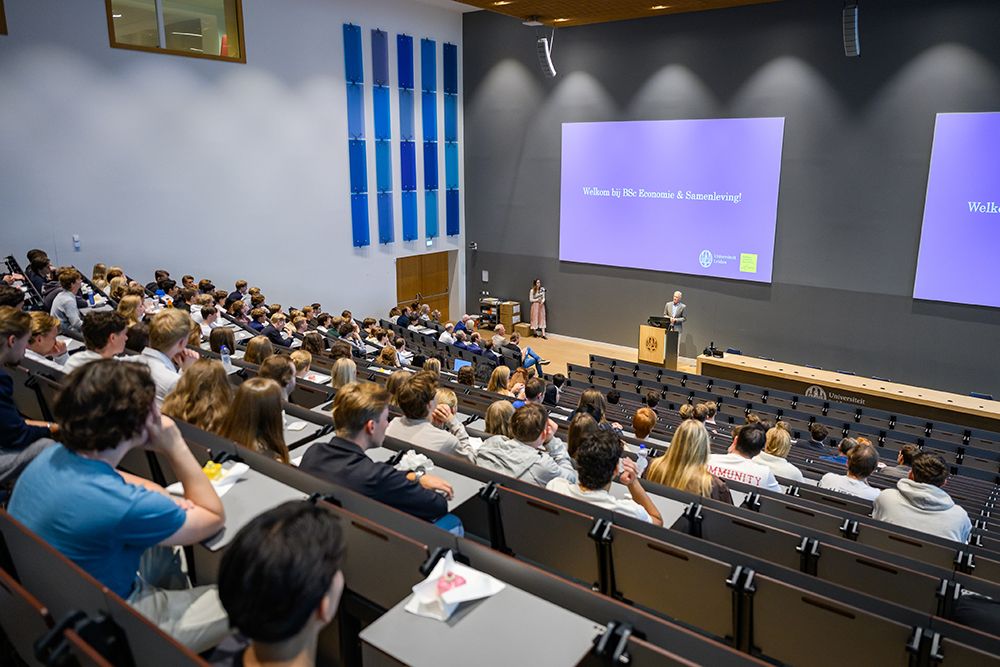
A full house in room 2.01 Wijnhaven -
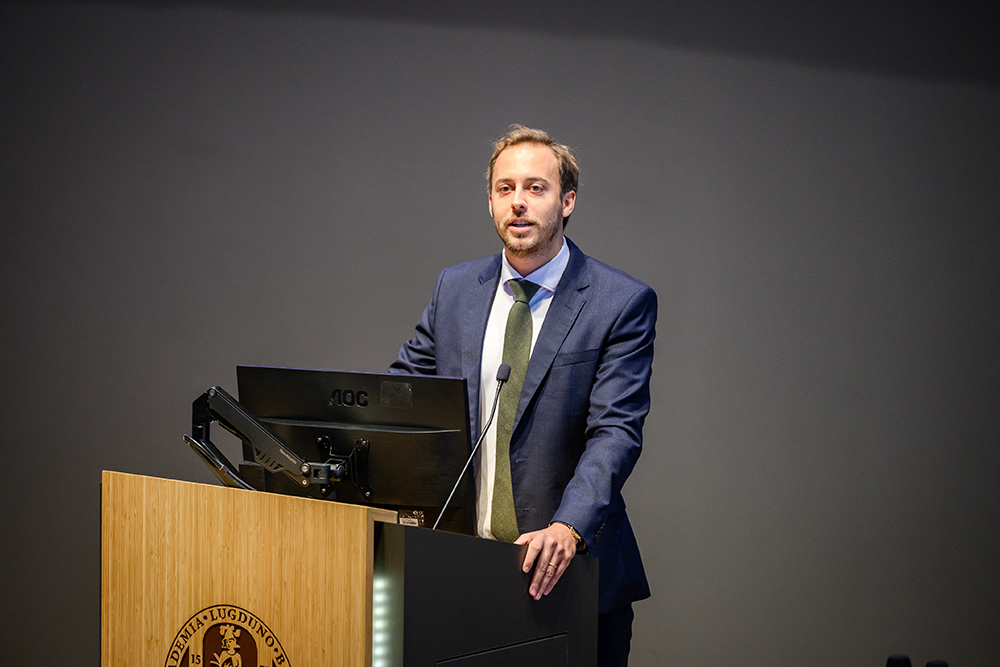
Philippe van Gruisen -
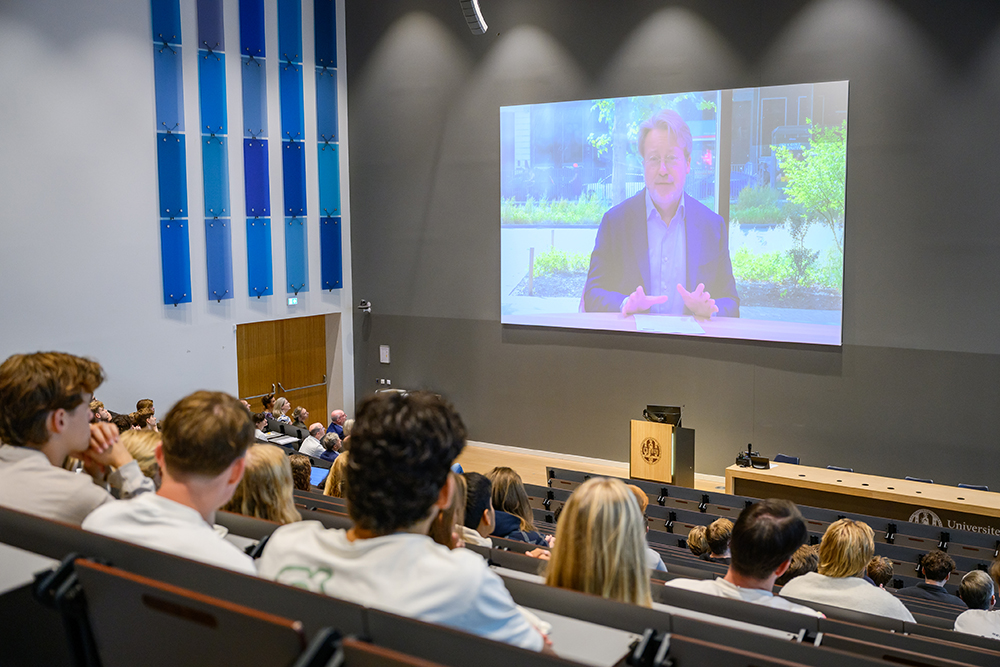
Olaf Sleijpen on film -
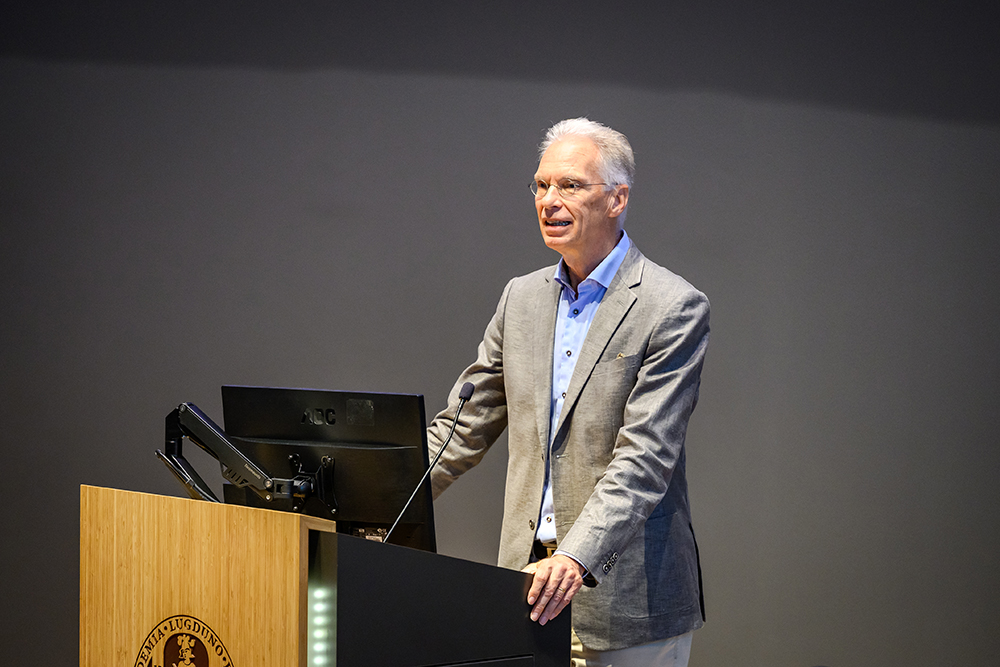
Kees Goudswaard -
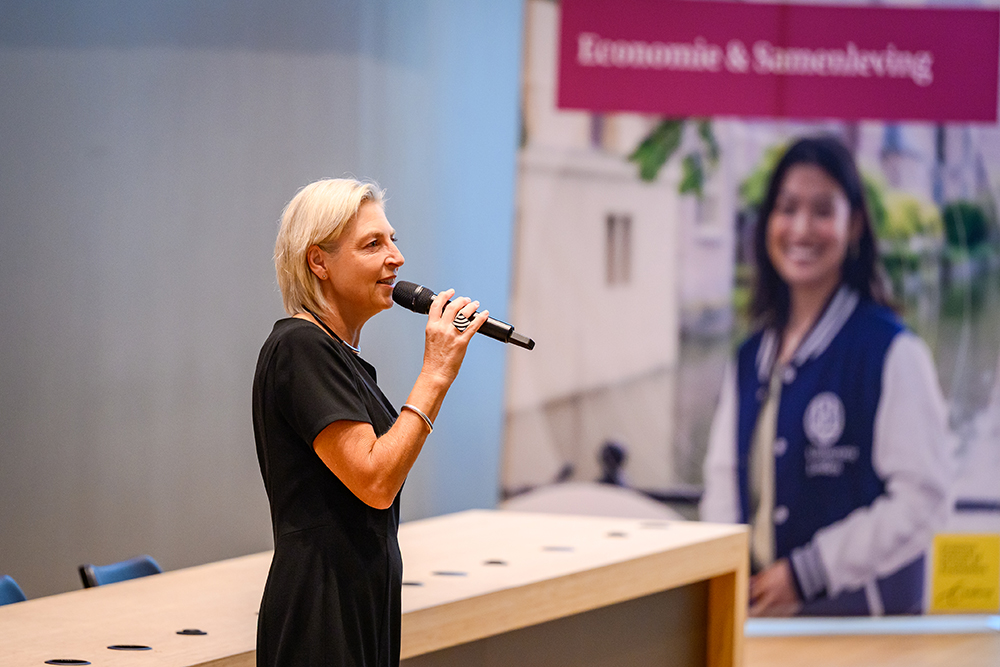
Dean Suzan Stoter -
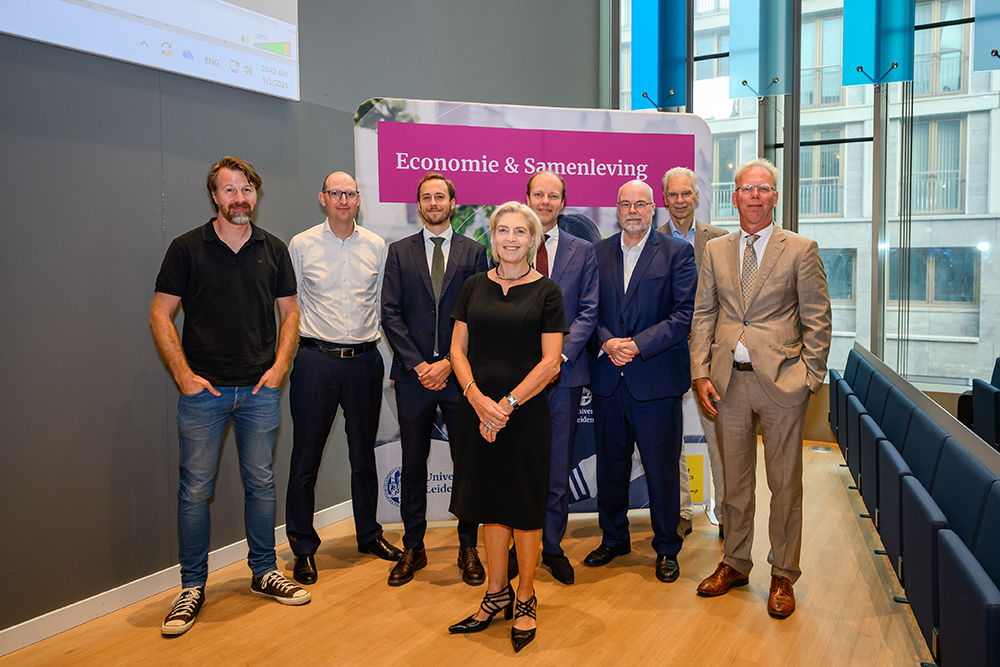
Dean FDR Suzan Stoter and Dean FGGA Koen Caminada with all colleagues involved in the programme
Cybersecurity & Cybercrime
The morning began with Daan Weggemans, board member of the new BSc Cybersecurity & Cybercrime: 'It’s fantastic to see so many of you here. You’ve chosen a programme that is urgently needed. The world is changing in ways that are hard to grasp, and new threats are emerging. We are increasingly dependent on digital systems, which makes us more vulnerable.'
He stressed that demand for expertise in this field is only growing: 'There's a great need for people who understand cybercrime. As the very first generation of students, you set the course for this programme, and perhaps for the field itself. That makes you our ambassadors.'
There are three new Dutch programmes in The Hague
The three new programmes in The Hague are:
-
Bachelor Cybersecurity & Cybercrime
-
Bachelor Economie en Samenleving (Economy and Society)
-
Master Economie van de Publieke Sector (Economics of the Public Sector)
Rector’s message
During the programme, students will acquire essential legal, criminological, technical and governance knowledge in the field of cyber. This was also emphasised by Rector Magnificus Hester Bijl. Appearing on the big screen via video link, she greeted the students from Leiden just before heading to the Pieterskerk for the opening of the academic year. Bijl drew the students’ attention to the brand-new Spui Building that awaits them: 'Let the city, its people and the opportunities here inspire you.'
Paul Ducheine uses a visual metaphor
During the grand welcome, none other than Brigadier General and military lawyer Professor Paul Ducheine gave a speech to the cyber students. It was not entirely one-way traffic: the students also provided input by answering simple questions. He asked the somewhat surprised audience: 'Where did you go on holiday? Which indoor sport do you play?'
A little later, his point became clear. The questions about holidays referred to the influence of the digital world and social media on our choices. And the questions about sport prepared the ground for a metaphor: the sports hall, with all its different lines on the floor, each representing a different game with different rules.
Ducheine explained: 'Every game is played differently. In one sport you may touch the ball, in another you may not. Cyberspace is like that sports hall: everyone is trying to win. All the circles overlap. And in that same hall, you'll also find criminals. Which team you play for will become clear with experience. The only thing we all share is the hall itself. Keeping the Netherlands safe, that is the victory we are working towards.
'Keep it simple'
Dave Maasland, CEO of IT security company ESET, reminded students that cyber conflict changes the rules of power: 'It’s no longer just about two countries facing each other with armies. It’s not who's the strongest, but who's the smartest. In every conflict, cyber plays a role.'
His main advice: keep complex issues accessible. 'Technology moves fast. We must make digital challenges clear enough for everyone to understand – politicians, business, society.'
A flying pencil
Finally, Dean Koen Caminada of FGGA closed the event by showing a photo of himself with his daughter in Leiden’s historic zweetkamertje (Sweat Room), where students traditionally write their names on the wall. She holds a pencil in the picture, the same kind that he promised the new students.
On screen, a drone was shown flying out of the chamber carrying such a pencil, before moments later entering the lecture hall in The Hague and landing live in front of the audience. The hall erupted in applause: the new programme was officially launched.
Master Economics of the Public Sector
The Master’s in Economics of the Public Sector does not start at the Wijnhaven location but at Schouwburgstraat. The students were welcomed by Programme Director Jim Been. They received a warm welcome from Dean Suzan Stoter, and Rosa d'Adelhart Toorop (VNO-NCW) shared her practical experience. Rosa emphasized the importance of economists who can link social ideals with financial policy: “The Hague is full of lobbyists, but we need people who can calculate the costs of plans and make them realistic.”
The Dean of Leiden Law School, Suzan Stoter, was present at all three welcome lectures and reminded the students how special the coming years will be. They are embarking on a brand-new programme at the oldest university in the Netherlands, on topics that have never been more important or relevant.

Gallery Cybersecurity & Cybercrime
-
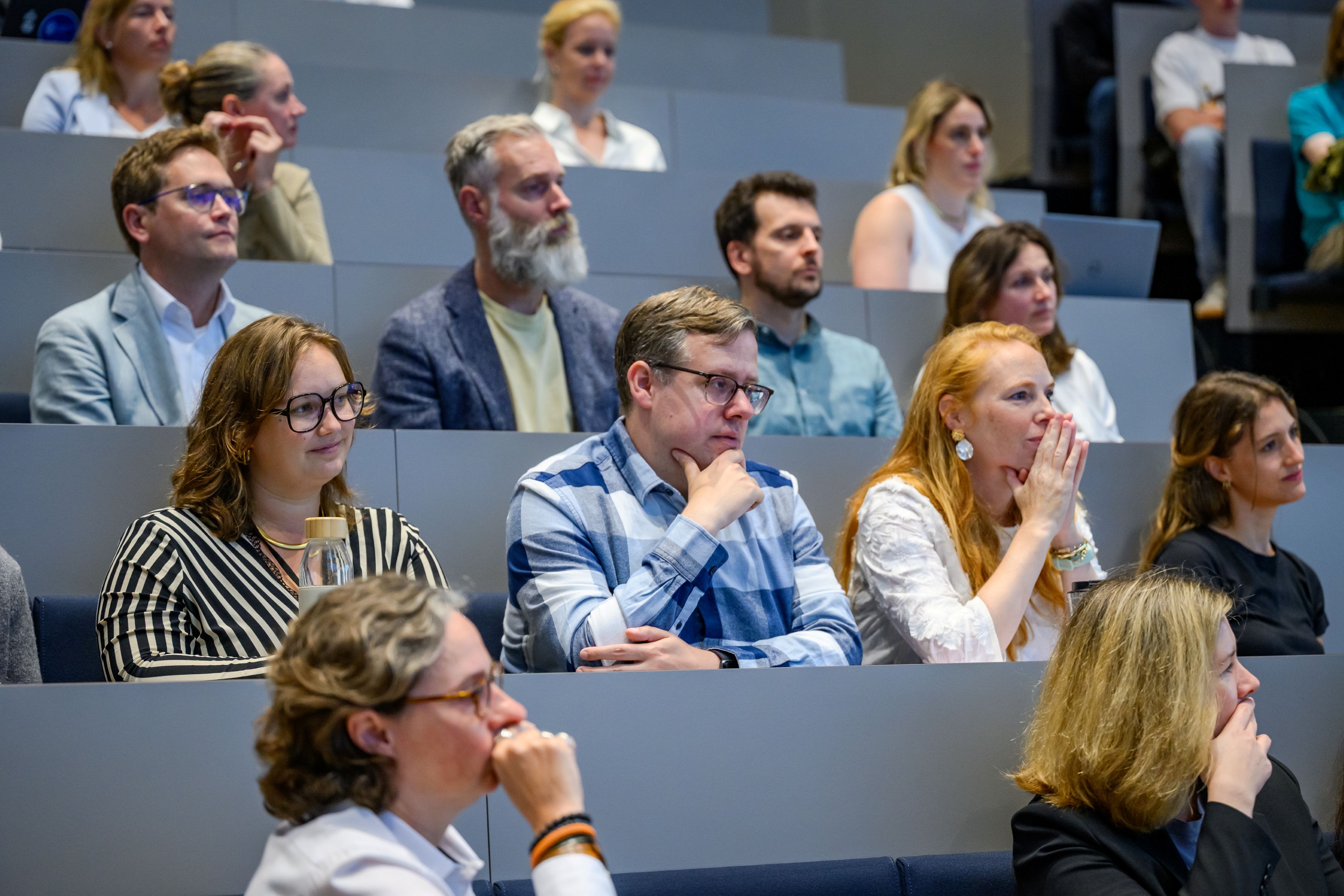
Teachers from Cybersecurity & Cybercrime -
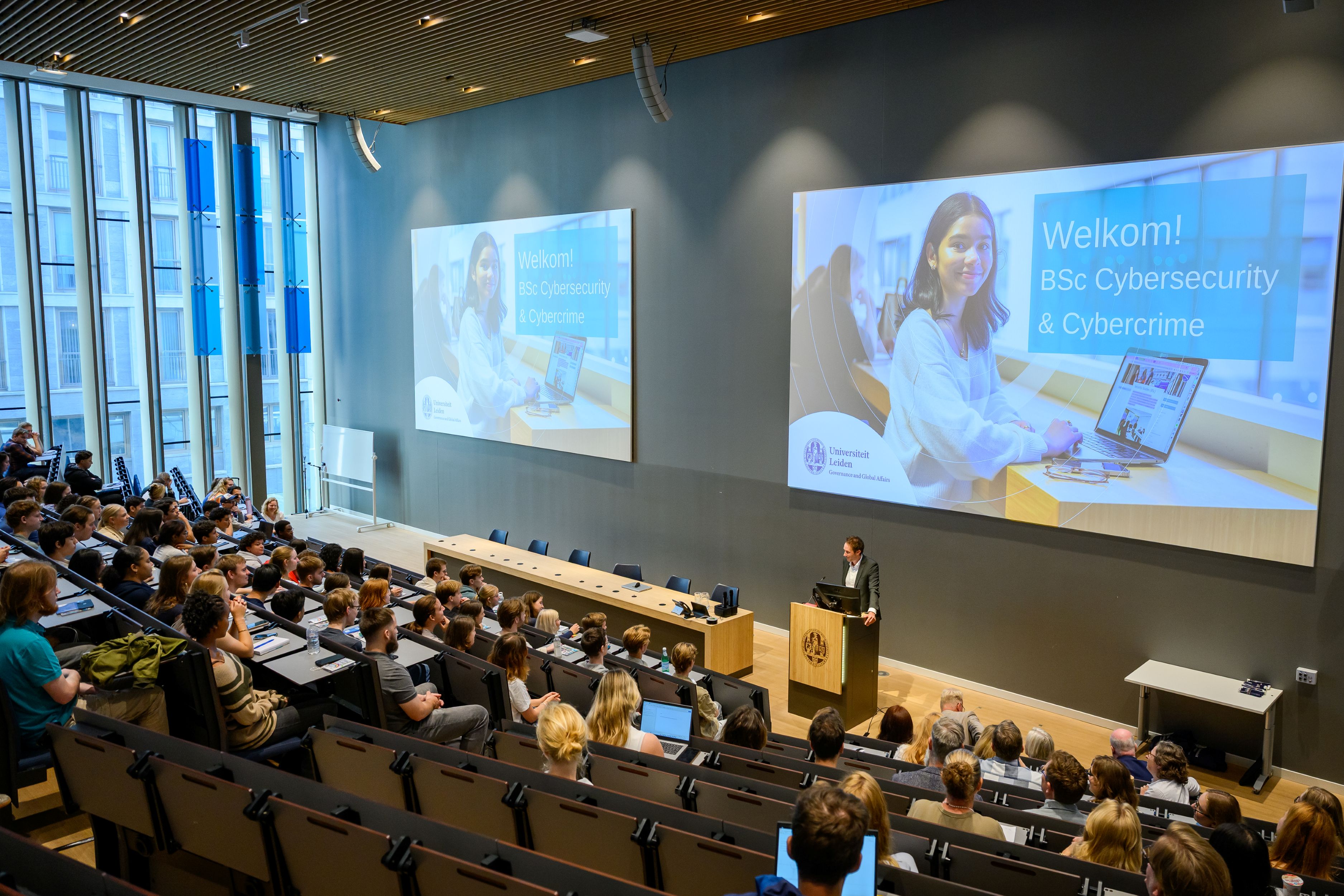
-
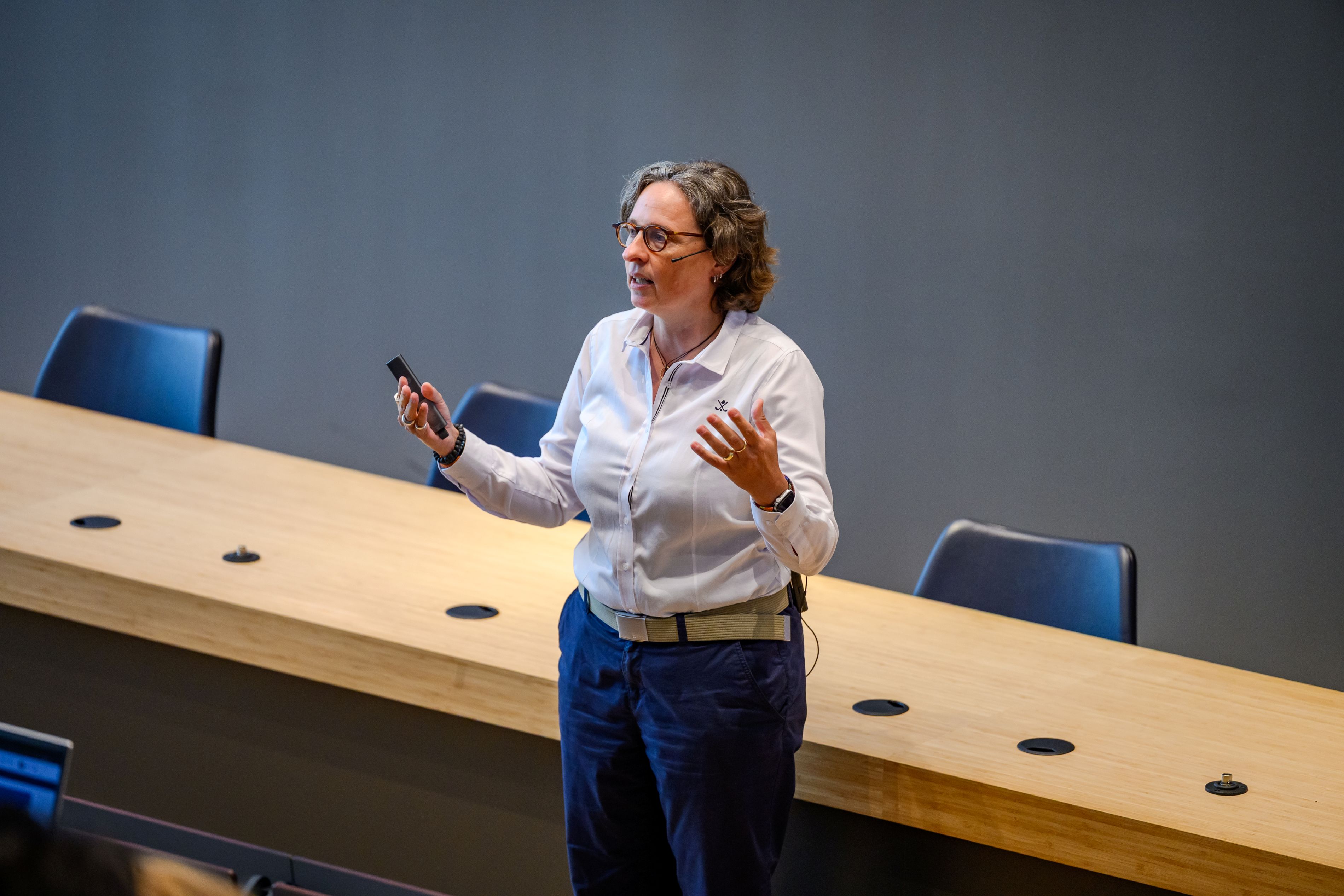
Cyberexpert Professor Bibi van den Berg -

The first lecture by Bibi van den Berg -
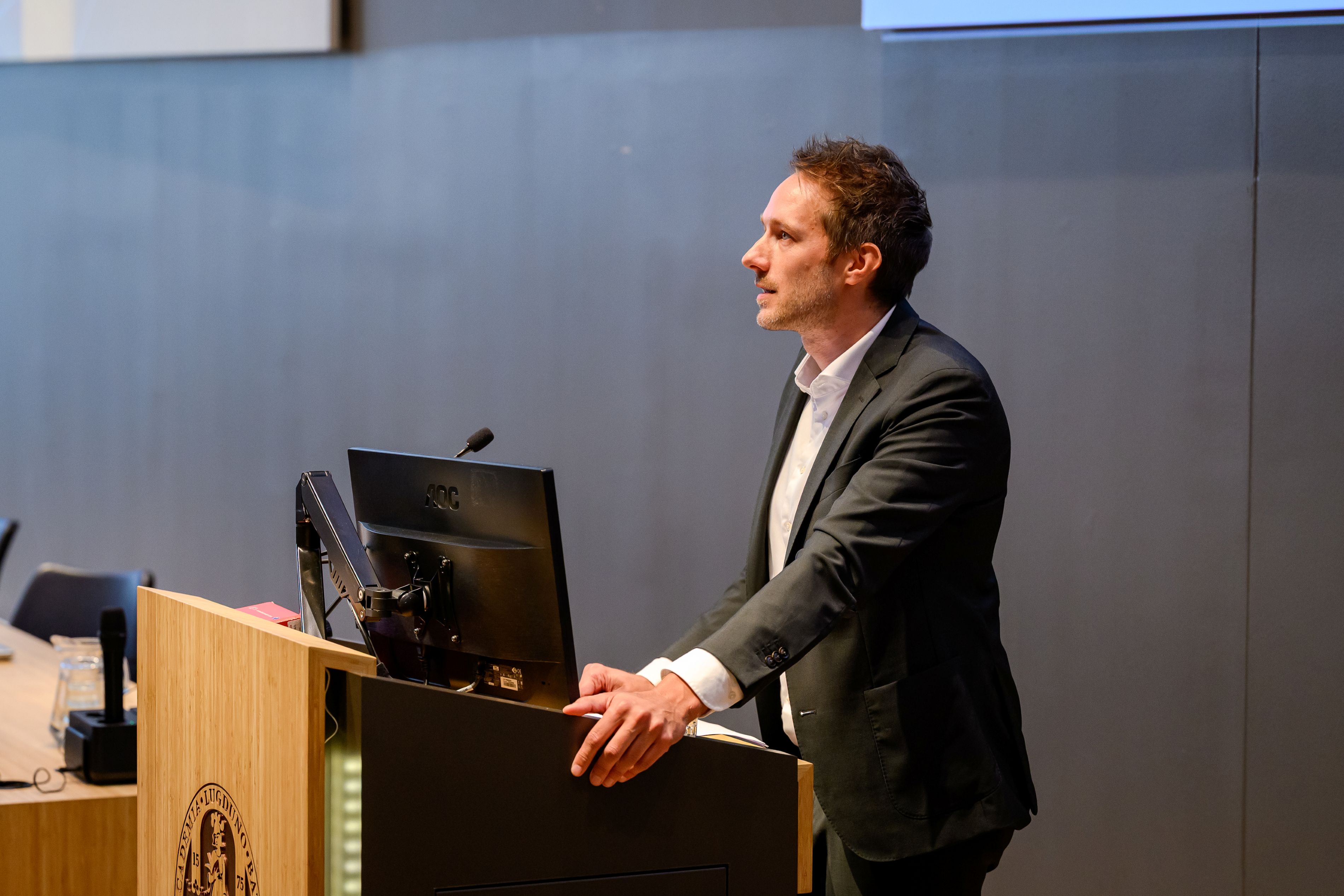
Daan Weggemans, board member of the new BaCC programme -
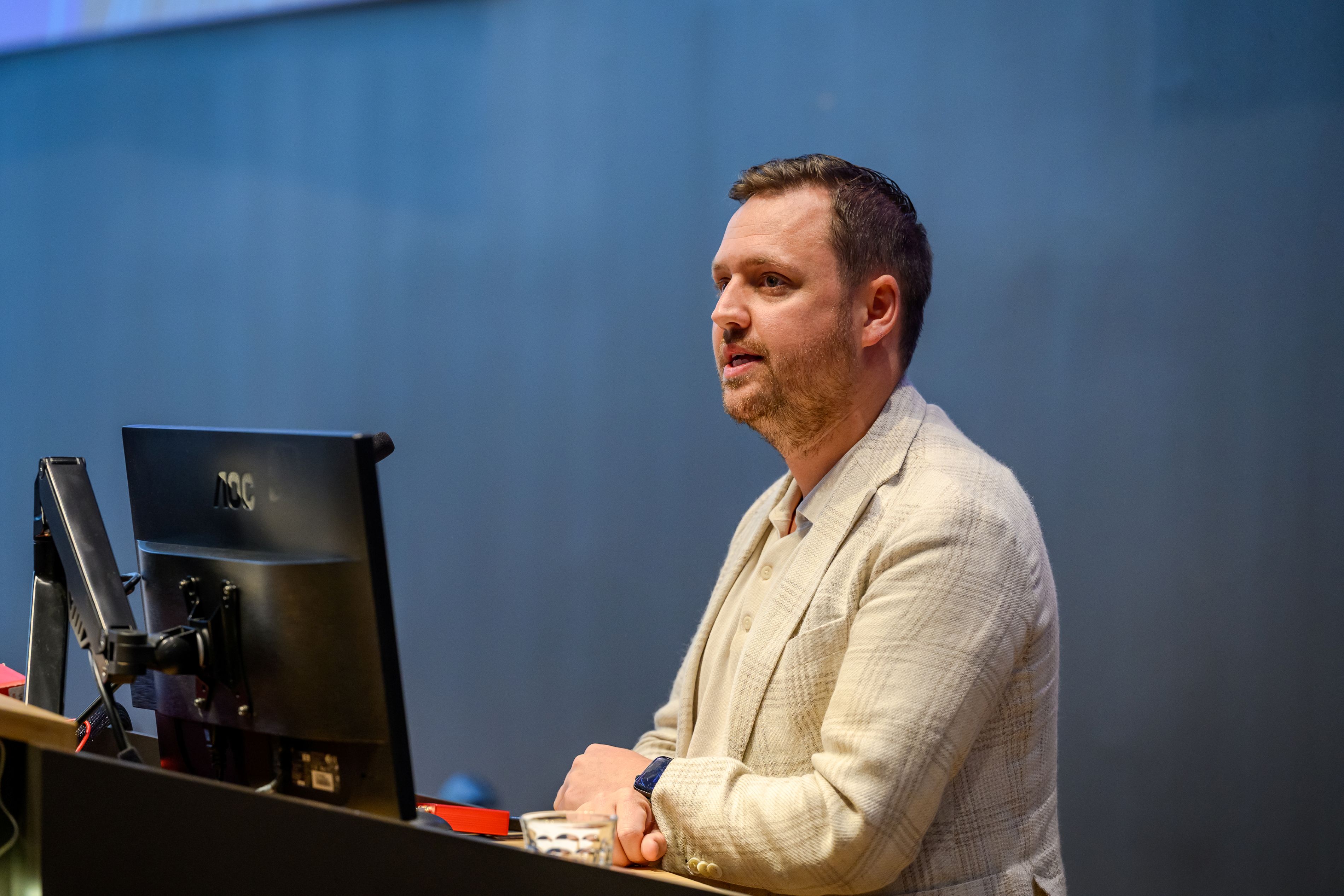
Dave Maasland, CEO of ESET -

The drone -
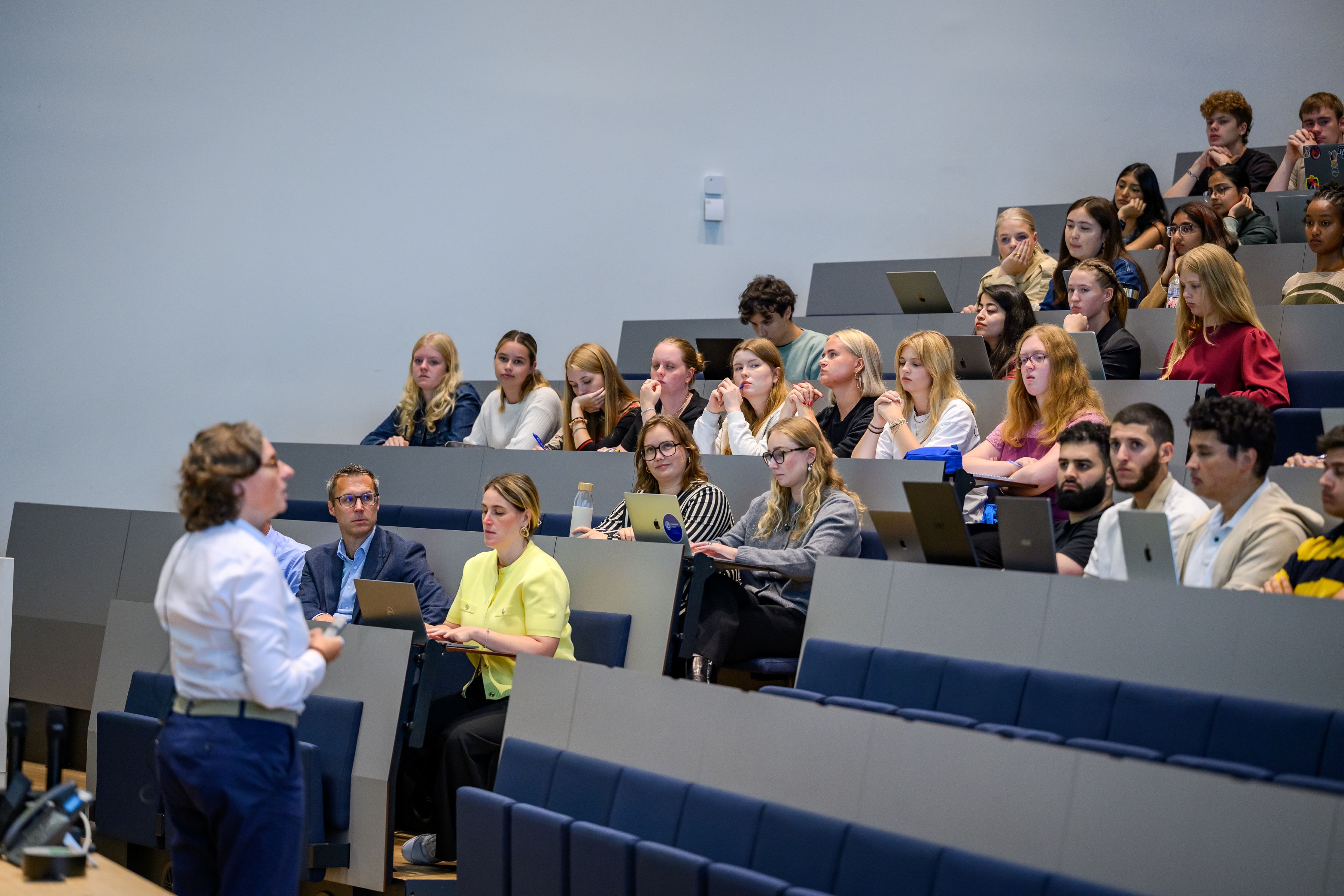
-
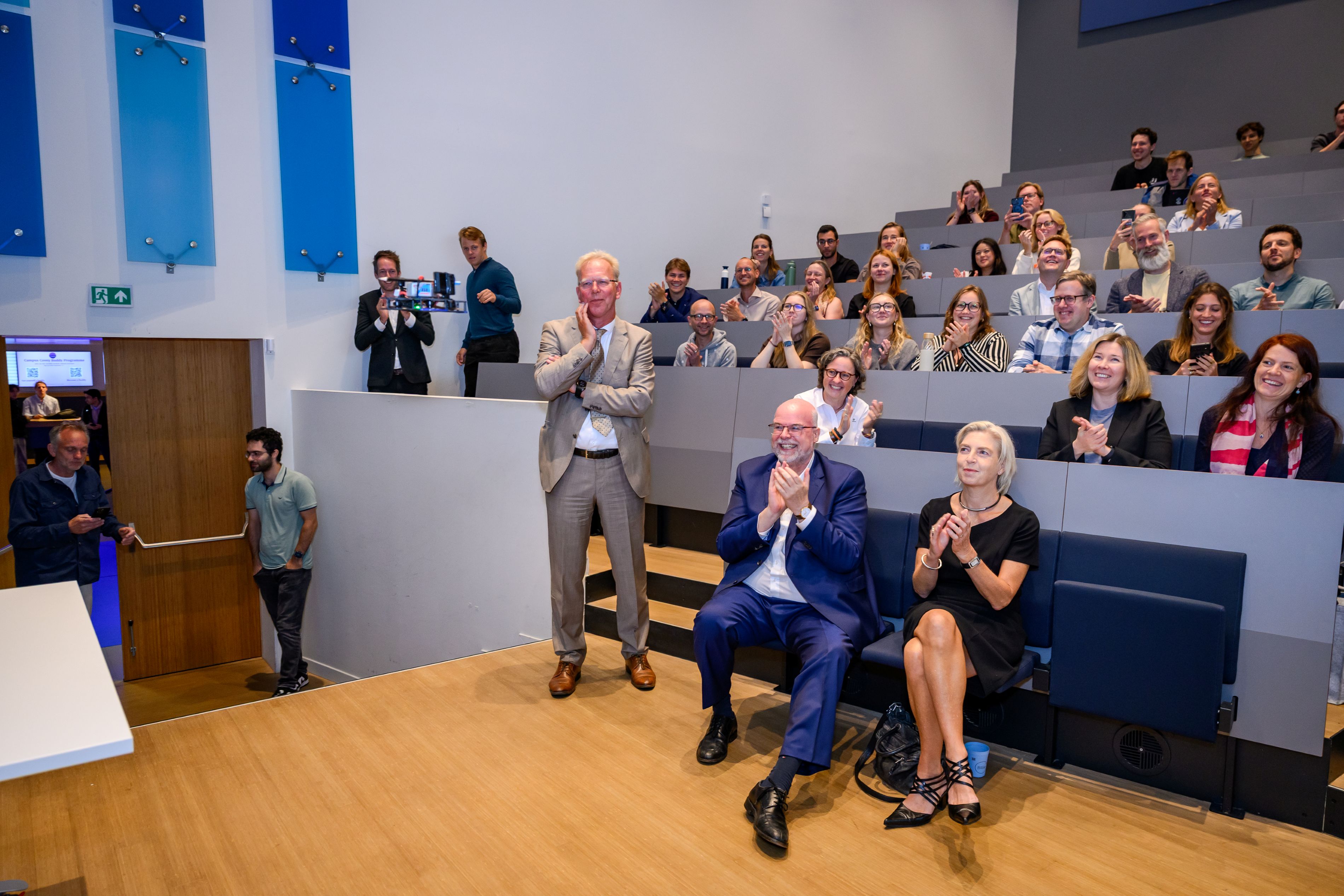
The drone enters the lecture hall -
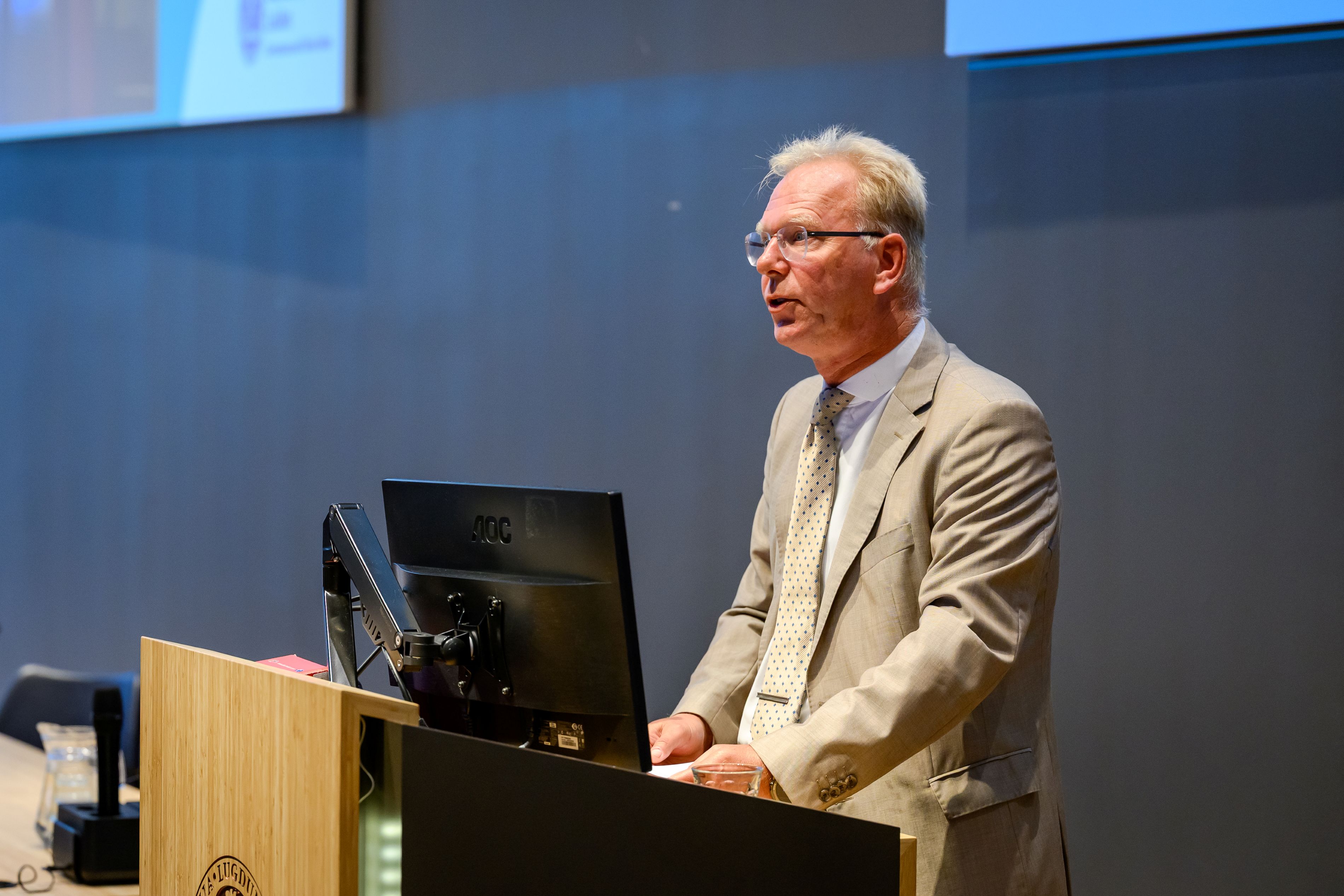
FGGA Dean Koen Caminada -
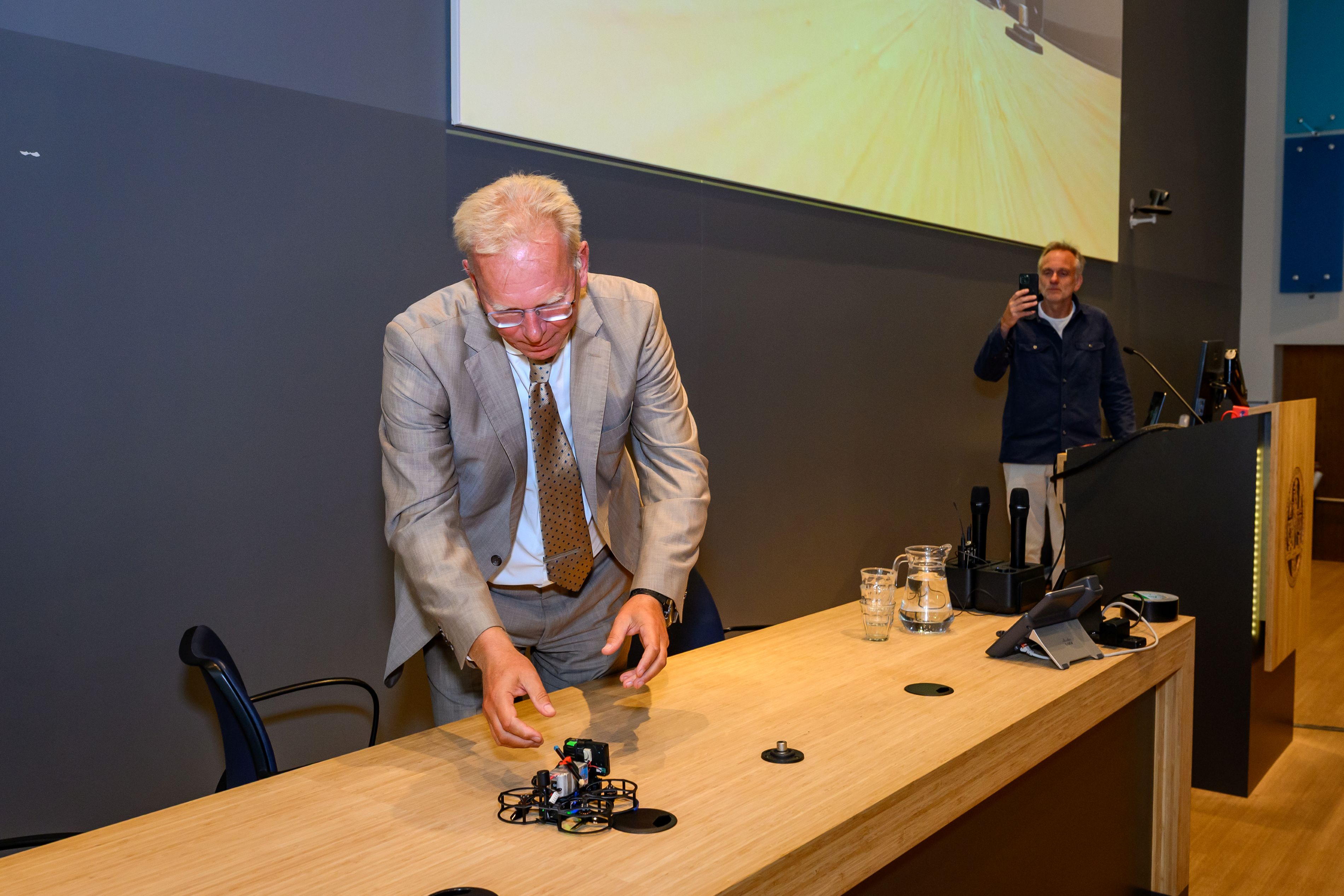
The drone lands -
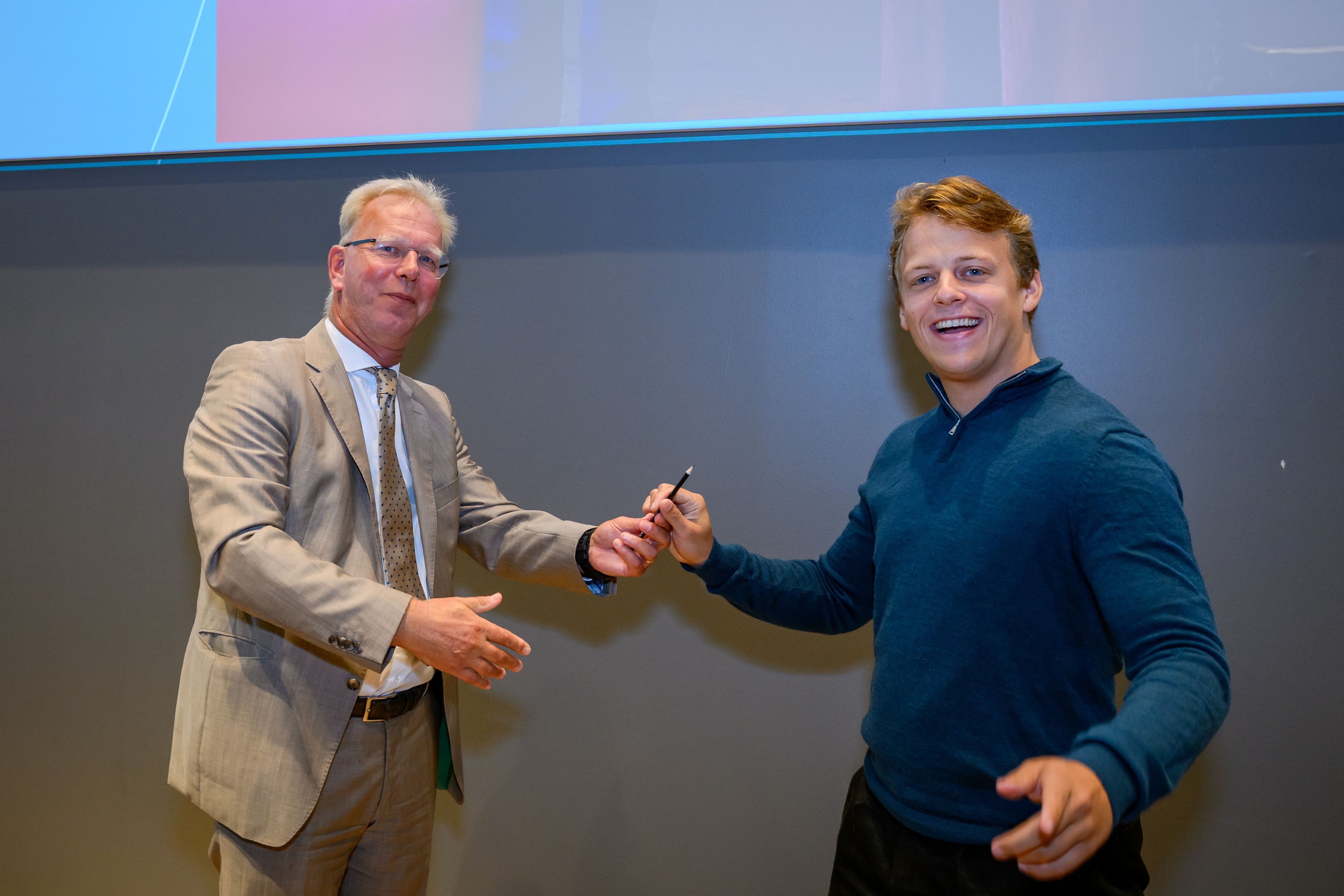
Koen Caminada and Sem van der Meer, student ambassador -
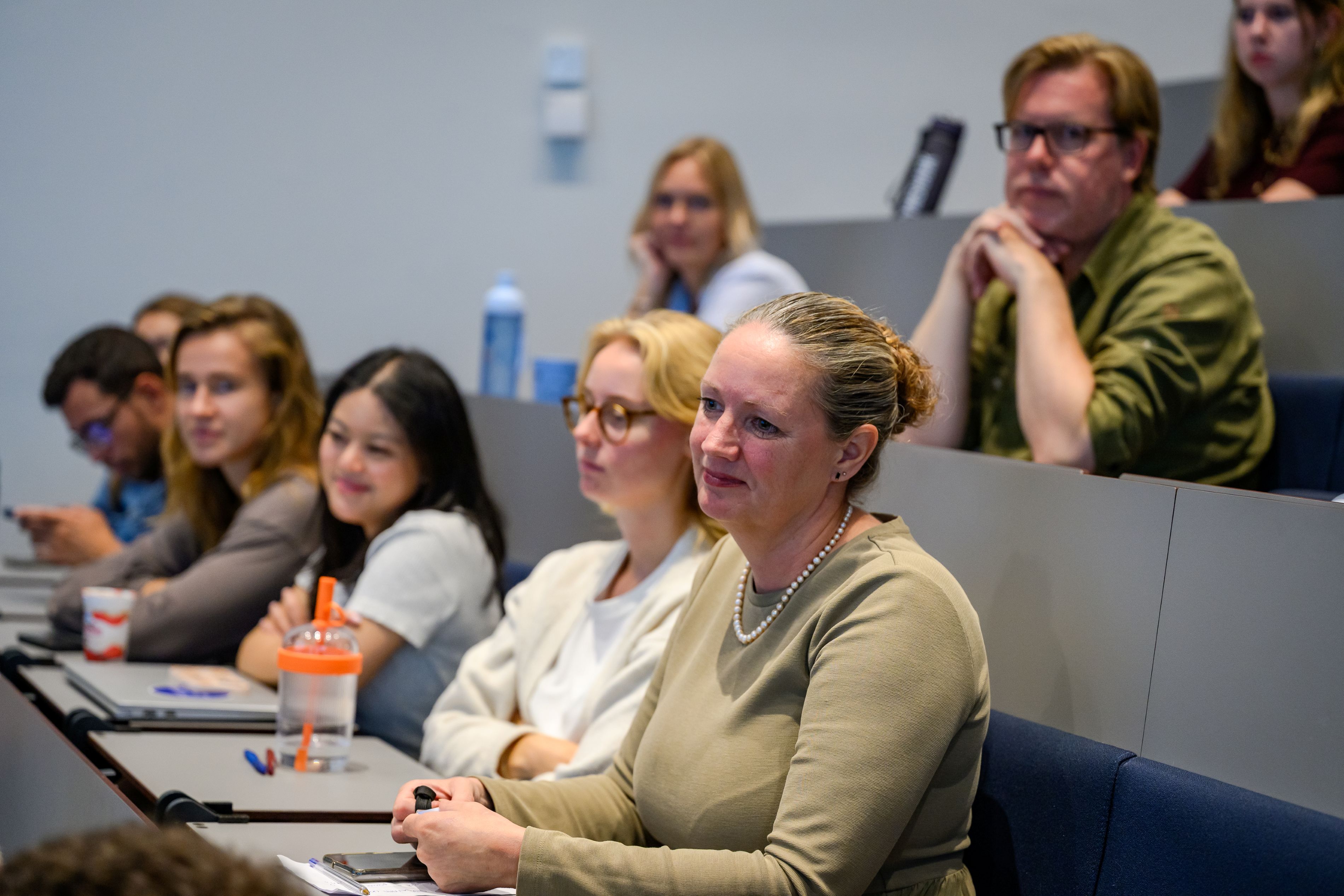
Noëlle Mahboeb, study coordinator -
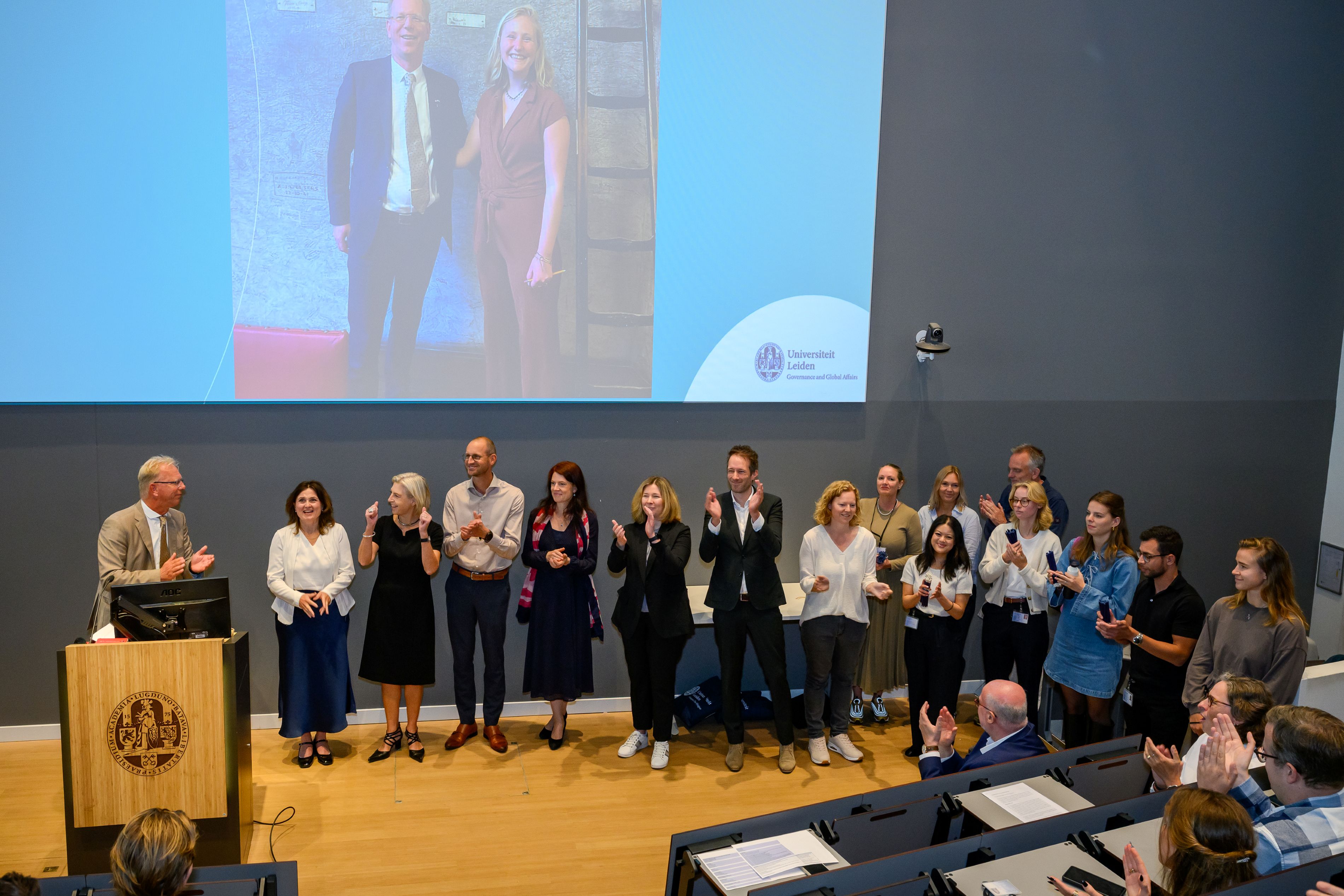
-
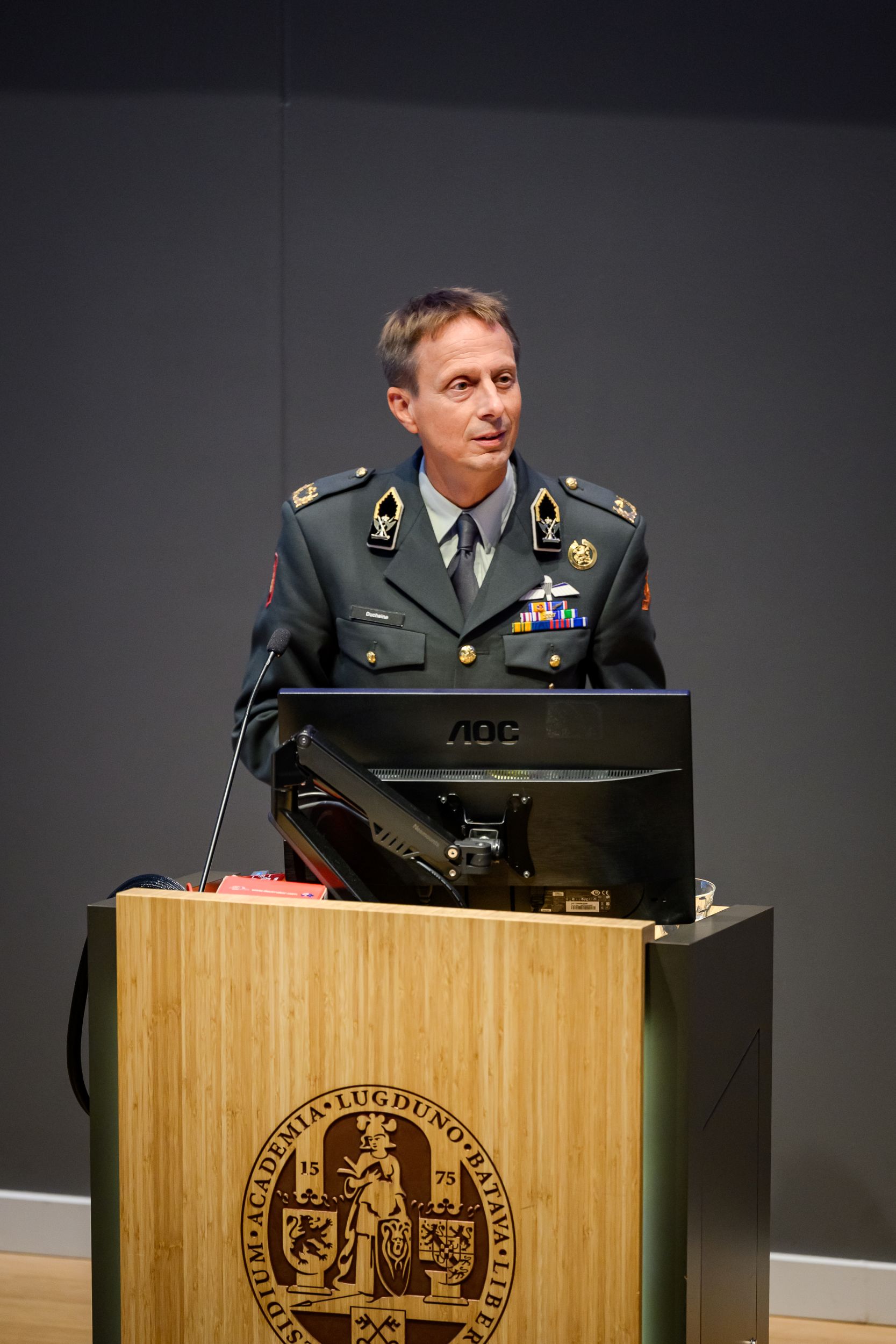
Brigadier General Paul Ducheine -
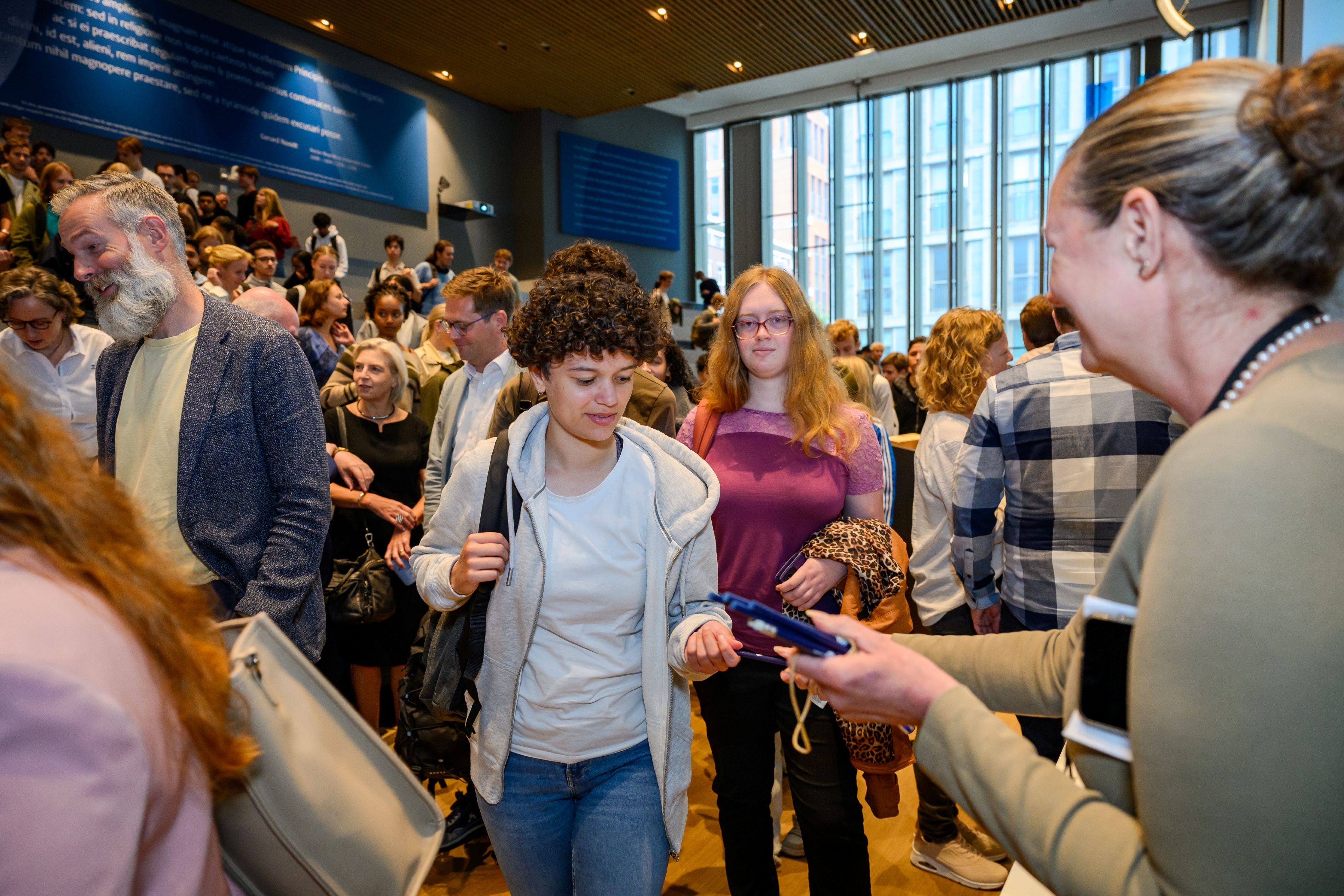
The pencils are handed out -
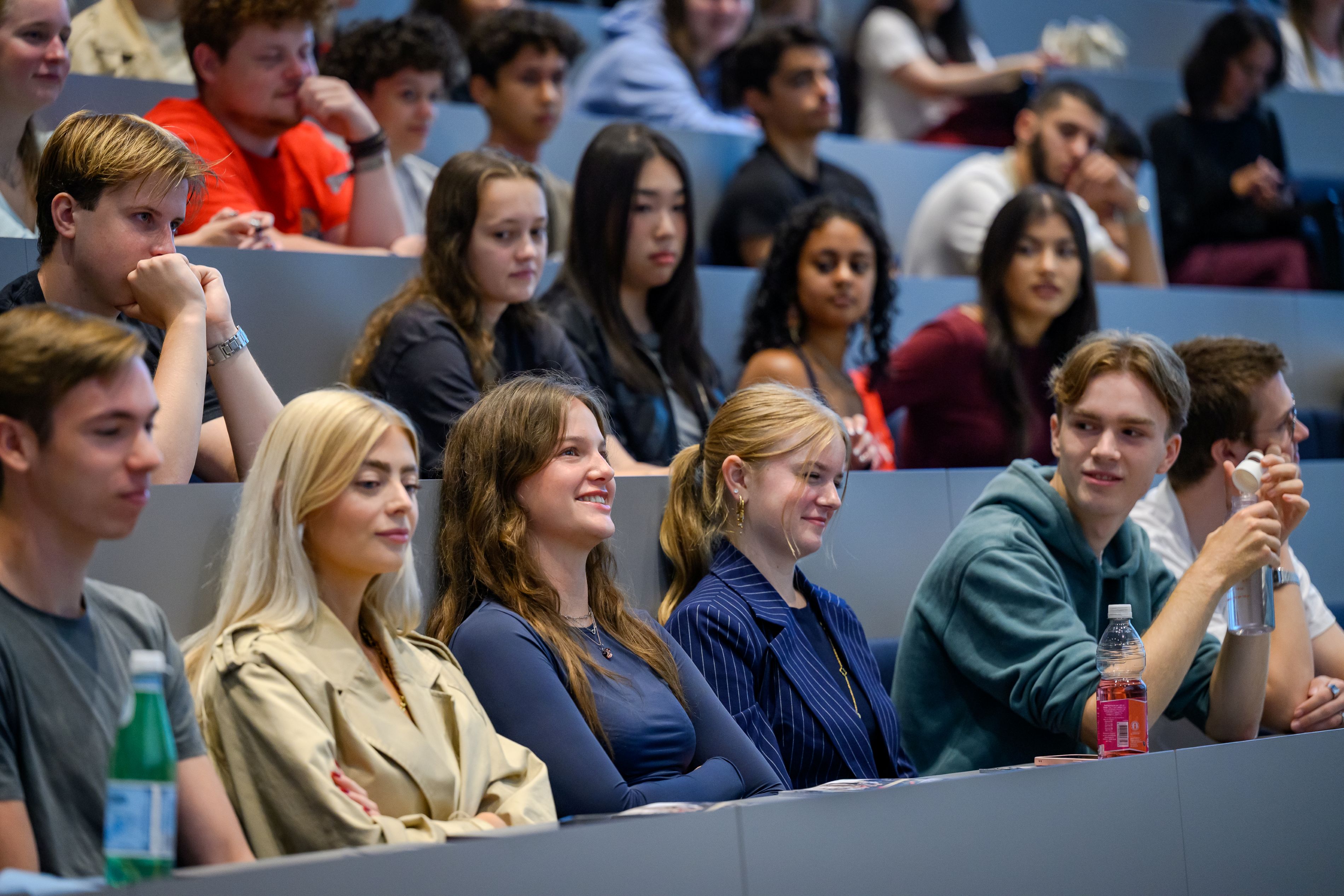
-
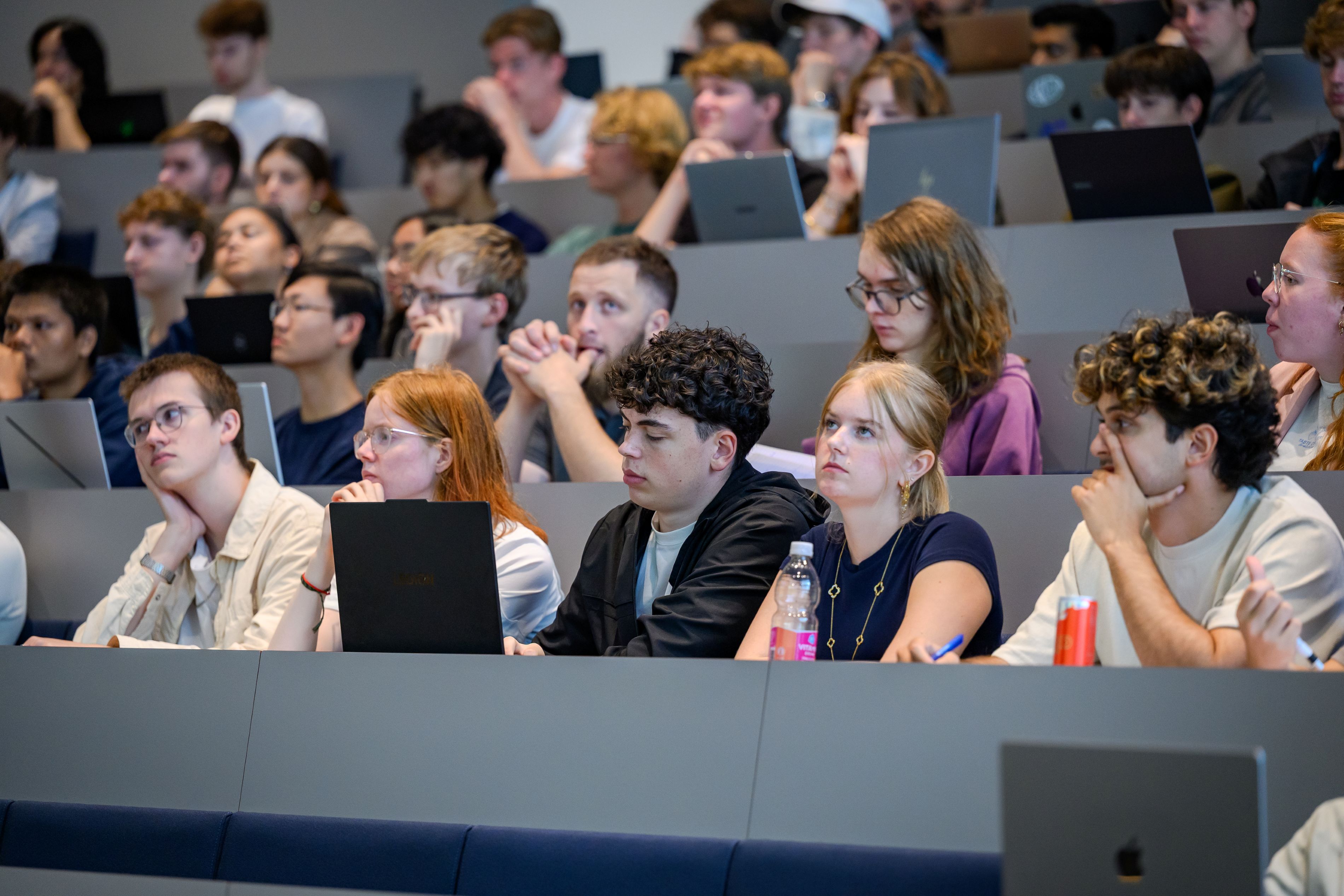
-
